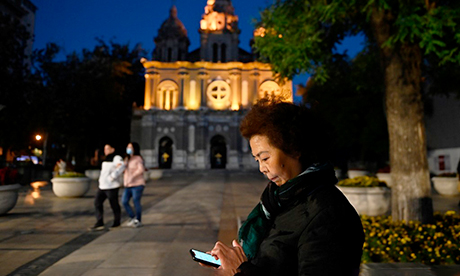A new law in China took effect on March 1 banning online gatherings for unregistered churches.
The law also makes it illegal to share religious content on social media.
The State Administration for Religious Affairs (SARA) announced in December that it would ban what it described as “unauthorised online services” for religious activities. It was adopted jointly with the Ministry of State Security and other agencies.
However, the two state-controlled denominations, the Roman Catholic Church and the Protestant Three-Self Patriotic Movement, are exempt from the new regulations.
A report from the rights group International Christian Concern (ICC) said the ban cut off many house churches from a “crucial resource in their ability to preach the gospel.”
Religious groups seeking to hold online activities such as streaming or publishing sermons should first get an Internet Religious Information Service Permit, said the report.
Organisations or individuals are also prohibited from raising funds online “in the name of religion.”
ICC said the measures “represent a direct assault on so much of China’s informal and unregulated religious activity.”
The report said the measures “will also impact state-sanctioned churches, as their permitted status places them front-and-centre for government oversight online.”
“This is extremely concerning given the already strict guidance for religious clergy to follow, including the promotion of national unity, love of country and love of party from the pulpit,” said the report.
Thomas Muller, Asia analyst for Christian anti-persecution charity Open Doors, said that even state-controlled churches will be affected by the law.
“To be able to post or share anything online requires an ‘Internet Religious Information Service Permit’. In practice, these will be made available only to the already ‘legally established’ churches,” he explained.
“Even these churches will have their content closely scrutinised to ensure that the message is in keeping with Chinese Communist Party teaching.
“All other ‘underground’ churches are effectively being driven off the internet.”
Dr David Landrum, Director of Advocacy for Open Doors UK & Ireland, said this latest law was part of a long-running strategy by the Chinese Communist Party (CCP).
“The CCP has long seen religion as a potential threat. So where it can’t shut religion down, it has tried to contain it,” he said.
“In recent years, we have seen some state-approved churches install facial recognition technology, close and destroy churches and rewrite passages of the Bible for educational materials.
“They fear that Christians have another loyalty than to the CCP, and they are correct.
“Churches will need to adapt the way they operate, with many possibly coming offline for now. As the nation’s search for meaning continues to be unmet by the nation’s official atheist dogmas, they will continue to grow.”
